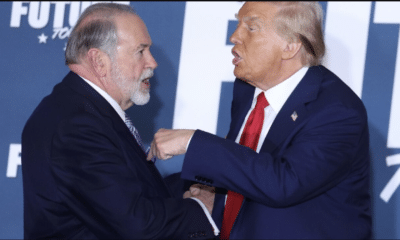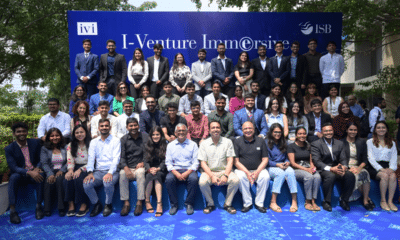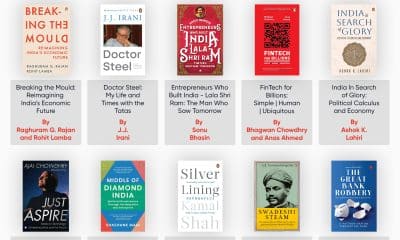Electric Vehicle
Nissan conducting feasibility study for producing EVs in India
Japanese auto major Nissan is conducting a feasibility study for producing electric vehicles in India, including setting up a battery manufacturing unit, company Chief Operating Officer Ashwani Gupta said on Thursday. The company has already started the one-year study and it is slated to be completed in the next nine months. If it gets a positive outcome, then the company will consider manufacturing EVs not just for the Indian market but for exports as well. Nissan, which is also developing ‘Kei’ (mini) electric cars in Japan in partnership with Mitsubishi, could also consider ‘Kei’ electric mini commercial vehicles for the Indian market to address the needs of the last mile delivery segment, which is rapidly growing.
Stating that Nissan is moving ahead with its electrification strategy all over the world, Gupta said for India, “what we are studying today are the three things. One is the car manufacturing, but the most important second thing is the battery manufacturing. If the battery is an integral part of the car manufacturing, we need to have battery and car together in terms of industrialisation”. The third thing is the charging infrastructure, he said during a virtual interaction with reporters. “So, these are the three things which we are studying today. And I think India has got the great opportunity to address all the three things and the moment we will be realising that study, we will decide what to do about electrification in India,” he said.
Also read: Telecom industry under tremendous stress; tariffs need to go up: Sunil Mittal
When asked about the timeline for the completion of the study, he said, “Within one year we will complete this study. We have already kicked off three months ago. I think within nine months, we will be ready with this study.” On a query if Nissan would consider exporting EVs from India, Gupta said, “If we are coming up with an electric car in India, only domestic (demand) will not help us because of the economy of scale. And definitely we will have to explore the opportunity for export.” He stressed that to have a successful EV industry, India should not think of importing either fully built or assembling completely knocked down units. “India should do the electric car right from zero, fully localised… The battery technology is so important in electric cars. And if India gets the competitiveness on battery technology, then I think India becomes a global hub for the electric car export,” Gupta said.
He also said that for localisation of battery manufacturing the minimum capacity requirement is a gigawatt. “You need to have proper infrastructure to manufacture batteries because of the safety, high voltage current and so on. So at minimum, we have to put in a gigawatt. Obviously, we need those kinds of volume,” Gupta said. Stating that to localise and to manufacture electric cars is so much driven by the battery plant and battery technology, he said, “That’s where we are studying now how to make that in India..making electric cars is important but most important is battery.” Replying to a query if Nissan would look at opportunities in the electrification of last mile delivery in India, he said, “Now we are working with Mitsubishi to come up with an EV ‘Kei’ car. And I’m pretty sure that one day we will come up with the ‘Kei’ commercial vans because that’s where the last mile delivery or last mile mobility stands for.”
Stressing that customer behaviour will drive the company to push and go for last mile delivery, he said, “I think after we are out with this, Kei EV in Japan, I think there’s a big opportunity to talk about in India.” However, he added, “Now the question is when we come to India with the Kei commercial vehicle, what is very important is what kind of business mechanism we are going for.” Whether the customers will charge their electric vans or cars at home or will Nissan invest in the infrastructure or will it ask fleet companies who have their own warehouses to fit charging points has to be studied, he added.
“I think this is a very good opportunity. However, we have to see a full value chain and work on it,” Gupta said. On Nissan’s future plans, he said, “We have already started working on other product lineup to complement success which has been brought by the Magnite.” He further said the company’s new Chairperson for Africa, Middle East, India, Europe and Oceania (AMIEO), Guillaume Cartier, who could not come due to COVID-19, will be travelling to India in the next six months “to talk about the business plan for India, with the next products”. The Japanese automaker on Thursday unveiled Nissan EV36Zero, a 1 billion pound flagship electric vehicle (EV) hub in Sunderland, UK.
The transformational project has been launched with an initial 1 billion pounds investment by Nissan and its partners Envision AESC, a global player in world-leading battery technology, and Sunderland City Council. Comprising three interconnected initiatives, Nissan EV36Zero brings together electric vehicles, renewable energy and battery production, setting a blueprint for the future of the automotive industry.










































Pingback: Inflexor Ventures announces final close of Inflexor Technology